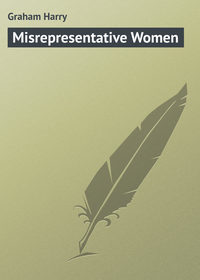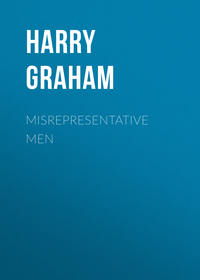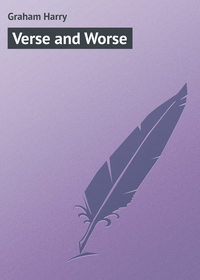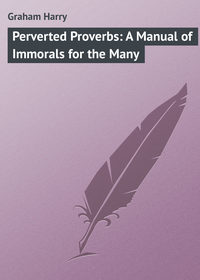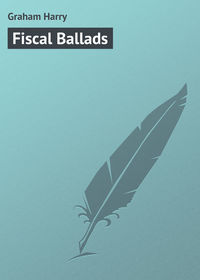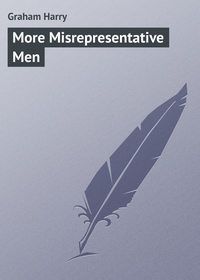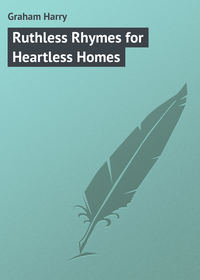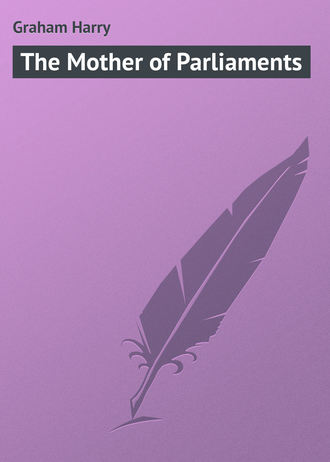 полная версия
полная версияThe Mother of Parliaments
The Supreme Court of Appeal had been violently attacked in the Commons, where certain members declared it to be inferior to any tribunal in the land. Palmerston in 1856 determined to remedy its defects by the addition of two Law Lords who should be life peers. This scheme was upheld by the Lord Chancellor, Lord Cranworth, but met with determined opposition in the Upper House. The Law Lords were especially opposed to it, fearing that, if such a precedent were allowed, no lawyer in the future would ever be given an hereditary peerage. On the Premier's recommendation the Queen proposed to confer life peerages upon two distinguished lawyers, Parke and Pemberton Leigh, and proceeded to issue a patent to the former, creating him Baron Wensleydale for life. When, however, the matter was referred to the Committee for Privileges, they decided that no life peer could either sit or vote in the House of Lords, and the Wensleydale and Kingsdown peerages had consequently to be made hereditary.
Persons who are raised to the peerage to-day are made peers of the United Kingdom. No Scotch peer has been created since the Union in 1707, and the right of conferring an Irish peerage which existed under certain restrictions in the Act of Union has ceased to be exercised except upon one notable recent occasion.41
During the last fifty years some one hundred and fifty additions have been made to the membership of the House of Lords. The only limit to the numerical increase of peers would seem to lie in the good sense of the Prime Minister or the patience of the Sovereign. It is of course the latter who confers peerages, though as the former usually brings suitable candidates for ennoblement to the royal notice, he is generally held responsible for the result of his recommendations.42
The House of Lords now includes some 616 members, divided, as we have seen, into four classes; the Lords Spiritual, the Lords Temporal – Princes of the Blood, Dukes, Marquesses, Earls, Viscounts, Barons – the Representative Peers of Scotland and Ireland, and the Lords of Appeal in Ordinary.
The writ of summons, which did not cease to be regarded as a burden until the reign of Edward II., is now looked upon as a privilege and right which few peers would willingly forego. And the question of mutual precedence which was never mooted until the creation of Viscounts in Henry VI.'s time, is now a matter of the utmost importance to the occupants of the Gilded Chamber.
The first Parliament that is recognized as conferring the right of peerage was that of the eleventh year of Edward I. The Lords decided, in the recent case of Lord Stourton claiming the Barony of Mowbray, that a writ summoning a peer to this Parliament, followed by a sitting, gave his descendants a seat in the House.
All Peers of the Realm – a phrase which came into use in 1322 – are entitled to seats in the House of Lords once they have attained their majority. Infancy disqualifies a peer from receiving a writ of summons; failure to take the oath or to affirm deprives him of the right of sitting. No alien may sit in the Lords, nor may a bankrupt or a felon, and the House as a Court of Justice may at any time pass sentence disqualifying a peer from sitting.
The functions of the Upper House which have been the subject of so much recent controversy and are still engrossing the attention of Parliament and the public, have been in former times variously defined by friendly or adverse critics. The Lords have been described as the brake on the parliamentary wheel or as the clog in the parliamentary machine. Horace Walpole wrote some bitter verses on the subject of that House whose members "sleep in monumental state, to show the spot where their great Fathers sate;"
"Thou senseless Hall, whose injudicious space,Like Death, confounds a various mismatched race,Where Kings and clowns, th' ambitious and the mean,Compose th' inactive soporific scene."43Peers themselves no doubt regard the Upper Chamber as a haven where merit may receive its ultimate reward; where the achievements and the recompense of the deserving are suitably immortalized. As a "compact bulwark against the temporary violence of popular passion," to use Disraeli's phrase, and as a council for weighing the resolutions of the Commons who may at times be led away by public clamour or a sudden impulse, the Second Chamber is regarded by its defenders as of the greatest constitutional value. Lord Salisbury once declared that the chief duty of the House of Lords was to represent the permanent as opposed to the passing feelings of the English nation; "to interpose a salutary obstacle to rash or inconsiderate legislation; and to protect the people from the consequences of their own imprudence." Moreover, the Upper House thus has an opportunity of improving the details of measures, many of which leave the House of Commons in an unworkable shape, owing to the conditions under which they are amended and passed through it, and, but for the alterations effected by the Lords, would remain unworkable when they came to be embodied in the Statute-book.
It has never been the course of the Upper House to resist a continued and deliberately expressed public opinion. The Lords, as Lord Derby affirmed in 1846, "always have bowed and always will bow, to the expression of such opinion."44 But although history to a certain extent bears out this statement, on more than one occasion the hand of popular clamour has battered at their doors for a long time before wringing from them a reluctant acquiescence. There can be no doubt that if the country were to express itself definitely upon any question at a General Election, no House of Lords would be strong enough (or weak enough) to attempt to thwart the public will. But there have been numerous instances in which the peers have endeavoured without success to do so. In vain did they delay Parliamentary Reform in 1831, when Sidney Smith likened the House of Lords to Mrs. Partington, the old lady of Sidmouth who, during the great storm of 1824, tried to push away the Atlantic with her mop.45 In vain did they inveigh against the passing of the Jewish Oaths Bill or the Bill for the abolition of the Corn Laws. They were eventually compelled to pass the latter, not because they thought it a good Bill, but because, as the Duke of Wellington said, it had passed the House of Commons by a huge majority, and "the Queen's Government must be supported."
On the other side it may be said that they have occasionally interpreted more successfully than the Lower House the views of the electorate, and of this perhaps the rejection of the Home Rule Bill of 1893 is the most prominent example.
Even without actually rejecting Bills the Lords have frequently opposed the will of the Commons by returning the Bills sent up to them in so amended and altered a shape as to prove wholly unacceptable; and an appeal to the country upon every point of difference, or even upon every Bill wholly rejected, is of course impracticable.
In some such cases the Commons have had recourse to a method of coercing the Lords, known by the name of "tacking," which depends for its efficacy upon the acceptation of certain doctrines relating to Money Bills laid down by the Commons at intervals during the last three centuries, and in the main acquiesced in by the Lords.
The history of the matter, though of acute interest at the present time, is too long to go into here. It will be sufficient to mention that in 1678, as the result of a violent struggle between the two Houses, the Commons passed Resolutions asserting (not for the first time) that all Money Bills must have their origin in the Lower House, and that the Hereditary Chamber is powerless to amend them. And though the Lords at the time protested against both these conclusions, by their action through a long course of years they must be taken to have acquiesced in them. If, then, the Lords were unable to amend a Money Bill, they might be compelled to accept an obnoxious measure of a different nature if it were included in such a Bill, the whole of which they would be loth to throw out. This was the process adopted in several instances by the Commons, against which the Lords passed, in 1702, a Standing Order declaring the "annexing any foreign matter" to be "unparliamentary and tending to the destruction of the Constitution."
In 1770 the Commons brought in a Bill to annul the royal grants of forfeited property, and, knowing that it would be objectionable to the Upper House, cunningly tacked it on to a Money Bill. The Lords returned it, with the foreign matter excised; but it was sent back to them once more, and, acting on the advice of the Duke of Marlborough who counselled concession, they eventually swallowed the whole mixture as gracefully as they could find it in their hearts to do. In 1860, the two Houses came into collision again on the same subject, when the Lords threw out the Bill abolishing the duty on paper, which was a financial question. Gladstone retorted in the following year by tacking this Bill on to the Budget, and in this shape the Lords passed it. But their right of rejection – which indeed is involved in the necessity for their assent to every Bill – was never questioned, either in 1678 or since, until the Budget Bill was thrown out in December, 1909, when the whole question of the relations between the two Houses was brought into vital prominence and made the subject of an agitation not easily to be assuaged.
There has always existed a spirit of antagonism between the two Houses. Gladstone declared that the Commons were eyed by the Lords "as Lancelot was eyed by Modred," and this mutual antipathy has occasionally expressed itself in overt acts of rudeness. During a debate in the Lords in 1770, on the defenceless state of the nation, a peer moved that the House be cleared of strangers. A number of the Commons happened to be standing at the Bar, but, notwithstanding their protests, they were unceremoniously hustled out, being followed by a volley of hisses and jeers as they left the Chamber. The Duke of Richmond and many other peers were so disgusted at this exhibition of ill-feeling that they walked out of the House. Colonel Barré has left a graphic description of the scene. The Lords, he says, developed all the passions and violence of a mob. "One of the heads of this mob – for there were two – was a Scotchman. I heard him call out several times, 'Clear the Hoose! Clear the Hoose!' The face of the other was scarcely human; for he had contrived to put on a nose of enormous size, that disfigured him completely, and his eyes started out of his head in so frightful a way that he seemed to be undergoing the operation of being strangled."46
Two years after this scene, in 1772, Burke was kept waiting for three hours with a Bill which he was carrying from the Commons to the Lords. When he subsequently reported his ill-treatment to the Lower House, their indignation knew no bounds, and they proceeded to revenge themselves in a somewhat puerile manner. The very next Bill that the House of Lords sent down to them was rejected unanimously, and the Speaker threw the offensive measure on to the floor of the House, whence it was kicked to the door by a number of indignant members.
It is not difficult to understand the cause of jealousy and anger between the Houses, in spite of the fact that so many of the Lords have at one time or another been members of the Commons, and so many of the Commons hope to end their days in the Lords. (Croker, in a letter to Lord Hatherton, recalls a visit he paid as a stranger to the Upper House in 1857, where, of the thirty peers present, there was not one but had sat with him in the Commons, including the Duke of Wellington and the Lord Chancellor. "It shows," he says, "how completely the House of Commons has been the nursery of the House of Lords."47) The resentment against the Lords that undoubtedly exists in the bosoms of the Commons, which is not confined to one side of the House, but seems to be universal, results from the power of rejection which the peers can at any time exercise with regard to a measure, or of making amendments by which they can alter it out of all recognition, thus nullifying in a single day the labours of months in the Lower House. And when it is considered that this ruinous result is due not only to men who owe their seats to their successful exertions in various professions, but also in larger proportion to those who owe them to being, as Lord Thurlow said of the Duke of Grafton, "the accident of an accident,"48 the situation must to many minds appear wholly intolerable.
One very clear cause of failure in the House of Lords to give satisfaction lies in the fact that, although government by Party is the very groundwork of the parliamentary constitution, as far as the Upper House is concerned such an idea might just as well not exist at all. Whatever the political complexion of the party in power in the House of Commons, the Lords maintain an invariable Conservative majority, indifferent to the swing of any popular pendulum, and as fixed and unalterable as the sun. But at no time for the last century has the inequality been so marked as at present, when it may be truthfully said that the Liberal peers would scarcely fill a dozen "hackney coaches."49 And though the Liberal party has created a considerable number of peers during the last few years, it has never recovered from the secession of Liberal Unionists, and it would take many years of Liberal supremacy and large drafts upon the Prerogative of the Crown to restore even the comparative balance of early Victorian days.
This may or may not be an advantage, for though the staunch Tory is tempted to exclaim in the words of Disraeli: "Thank God there is a House of Lords!" the equally staunch Radical is scarcely likely to consider the existence of this perpetually antagonistic majority a sufficient cause for gratitude towards the Almighty. The difficulty of equalising the parties seems insurmountable, so long as ennoblement is an expensive luxury and Peers continue to be drawn from the wealthy classes.50 There is, too, something essentially Conservative about the atmosphere of the House of Lords, which sooner or later impregnates the blood of its inmates; under its influence the Liberal of one generation rapidly exhibits a tendency to develop into the Conservative of the next. But this charge is no doubt one which may be brought with more or less truth against any Second Chamber, however constituted, which is composed of men of a certain age and position, not immediately responsible to the fluctuating voices of the people. Whether one considers such stability to be a merit or the reverse depends upon whether one adopts Lord Palmerston's and Lord Salisbury's views of the functions of a Senate, or regards it merely as a useful and select body of legislators enjoying certain limited powers of criticism and delay.
So much has been written about this great modern controversy, that it is unnecessary to increase the literature which exists upon both sides. The issue seems to lie between reducing the Second Chamber to comparative impotence or attempting by judicious reforms in its composition to bring it into greater sympathy with the First Chamber.
The Resolutions recently passed by the Commons,51 have for their object the complete annihilation of the latter in all matters of finance, and the retention for them of such modified powers of influencing other legislation as would enable them to delay Bills during the early years of a shortened Parliament, and refer them to the country during its last two years. The question of "tacking," in Money Bills, is to be referred to the sole arbitrament of the Speaker; but this becomes of trifling importance when it is argued that almost any revolutionary change could be effected within the corners of a legitimate financial measure. The objection taken to the overriding of the Veto in the case of a Bill thrice presented, is that it amounts to one-Chamber legislation and would result in two classes of Acts – one passed by the Commons alone, and the other by both Houses.
The policy of Reform, on the other hand, is unacceptable to those who desire the predominance of the First Chamber, as any successful scheme for removing present defects in the constitution of the Lords —e. g. the excessive size of the House, the preponderance therein of one party, and the presence of undesirable members – must result in its increased strength and importance. Consequently the Commons have neither made nor encouraged any attempts in that direction.
Such suggestions as have taken any shape have been proposed by the Lords themselves, and the history of the last thirty years exhibits many internal efforts to reform on the part of those dissatisfied with the ancient constitution of the House. In 1884, Lord Rosebery's motion for a Select Committee to consider the best means of promoting the efficiency of the House of Lords, was negatived. Four years later he moved for another Select Committee to inquire into the Constitution of the House. In the same year an elaborate Bill of Lord Dunraven's for reforming the Lords was rejected, and another, promoted by Lord Salisbury, was withdrawn after having passed the second reading. In 1908 a committee met, under the chairmanship of Lord Rosebery, to look into the whole question, and issued a most interesting and practical report, full of admirable recommendations. This committee began by pointing out the expediency of reducing the numbers of an assembly which, within recent years has increased to such an extent as to render itself too unwieldy for legislative purposes. It strongly urged that the recommendations to the Crown for the creation of hereditary peerages should be restricted within somewhat narrower limits. Many peers, as the report explained, are obviously ill-suited to their Parliamentary duties; others find the work irksome and distasteful; of a few it may euphemistically be observed that their release from the burden of legislative responsibilities would be eminently desirable. Lord Rosebery's committee therefore came to the conclusion that the dignity of a peer and the dignity of a Lord of Parliament should be separate and distinct, and that, except in the case of peers of the Blood Royal, the possession of a peerage should not necessarily be attended with the right to sit and vote in the House of Lords. A further suggestion was made that the hereditary peers should be represented by two hundred of their number, elected by them to sit as Lords of Parliament, not for life, but for each parliament, and that the number of Spiritual Peers should be proportionately reduced to ten. The inclusion of representatives from the Colonies, and the granting of a writ of summons to a number of qualified persons who had held high office in the State, figured prominently in this scheme of reform.
Following up these recommendations, the House on the motion of Lord Rosebery has recently adopted the following resolutions for its own reconstitution: —
"(1) That a strong and efficient Second Chamber is not merely an integral part of the British Constitution, but is necessary to the well-being of the State and to the balance of Parliament.
"(2) That such a Chamber can best be obtained by the reform and reconstitution of the House of Lords.
"(3) That a necessary preliminary of such reform and reconstitution is the acceptance of the principle that the possession of a peerage should no longer of itself give the right to sit and vote in the House of Lords."52
We are sometimes tempted nowadays to laugh, like "the gardener Adam and his wife," at the claims of long descent. But the pride of birth and blood is common to all nations, perhaps less so in England than elsewhere. The French ducal family of Levis boasted a descent from the princes of Judah, and would produce an old painting in which one of their ancestors was represented as bowing, hat in hand, to the Virgin, who was saying, "Couvrez-vous, mon cousin!" Similarly the family of Cory possessed a picture of Noah with one foot in the ark, exclaiming, "Sauvez les papiers de la maison de Cory!"53 Byron is said to have been prouder of his pedigree than of his poems, and it is to be hoped that our aristocracy will never entirely forget that their ancestors have handed down to them traditions which are more precious than the titles and lands by which they are represented.
One cannot altogether relish the sight of several peers, who had been considered incompetent to manage their own affairs, hastening to Westminster at the call of a party "Whip" to record their votes upon Imperial concerns of the greatest importance. And though it must be admitted that it is rare indeed for the incompetent or degenerate members of the Upper House to take any part in its deliberations, the fact that they have the undoubted right to do so scarcely tends to enhance the respect in which that assembly is popularly held. In spite, however, of the occasional presence of "undesirables," it is generally acknowledged that if any question arises requiring a display of more than ordinary knowledge of history, or more practical wisdom or learning, these can nowhere be found so well as in the Upper House. There, too, the level of oratory and of common sense is perceptibly higher than in the popular assembly. But the Reform Bill of 1832 enabled the Commons to speak in the name of the people, which they had never hitherto done, and which the Lords cannot do, and thus created that wide gulf which now separates them from the House of Lords. Here, however, as well as there, are many men who realise that, in the words of Lord Rosebery, they have a great heritage, "their own honour, and the honour of their ancestors, and of their posterity, to guard."54
CHAPTER III
THE HOUSE OF COMMONS
The Witenagemot, as we have already seen, was essentially an aristocratic assembly. The populace sometimes attended its meetings, but, beyond expressing their feelings by shouts of approval, took no part in its deliberations. For many years after the Conquest the People continued to be unrepresented in the Great Council of the nation, though they were still present as spectators. From 1066 until about 1225, says Blackstone, the Lords were the only legislators. After the latter date the Commons were occasionally summoned, and in 1265 they formed a regular part of the legislature. Then for the first time did the counties of England return two knights, and the boroughs and cities two deputies each, to represent them in Parliament. Seventy-four knights from all the English counties except Chester, Durham, and Monmouth,55 and about two hundred burgesses and citizens, sat in the Parliament of Edward I.; but it was not until the reign of his successor that any attempt was made to form a constitutional government.
The Three Estates in those days sat in the same Chamber, but did not join in debate. The Lords made the laws, and the Commons looked on or perhaps assented respectfully. The separation of the two Houses took place in the reign of Edward III., when the knights threw in their allegiance with the burgesses, and in 1322 the Lower House56 first met apart.
The power of the Commons increased gradually as time advanced. By the end of the thirteenth century they had secured sufficient authority to ensure that no tax could be imposed without their consent. By the middle of the fourteenth no law could be passed unless they approved. But many centuries were yet to elapse before the chief government of the country passed into their hands.
The expense of sending representatives to Parliament was long considered a burden, many counties and boroughs applying to be discharged from the exercise of so costly a privilege. The electors of those days were apparently less anxious to furnish a Member for the popular assembly than to save the payment of his salary. Indeed, the city of Rochester, in 1411, practised the frugal custom of compelling any stranger who settled within its gates to serve a term in Parliament at his own expense. He was thus permitted to earn his freedom, and the parsimonious citizens saved an annual expenditure of about £9.57
With the gradual growth of parliamentary power the importance of electing members to the House of Commons began to be recognized, and, during the Wars of the Roses, fewer and fewer applications were made by boroughs and cities anxious to be relieved of this duty.
Until Henry VI.'s time, when the modern system of Bills and Statutes began to come into being, legislation was by Petition. The control of Parliament was still very largely in the hands of the Crown, and successive sovereigns took care that their influence over the Commons should be maintained. With this object in view Edward VI. enfranchised some two-and-twenty rotten boroughs, Mary added fourteen more, and in Elizabeth's time sixty-two further members, all under the royal control, were sent to leaven the Commons.


